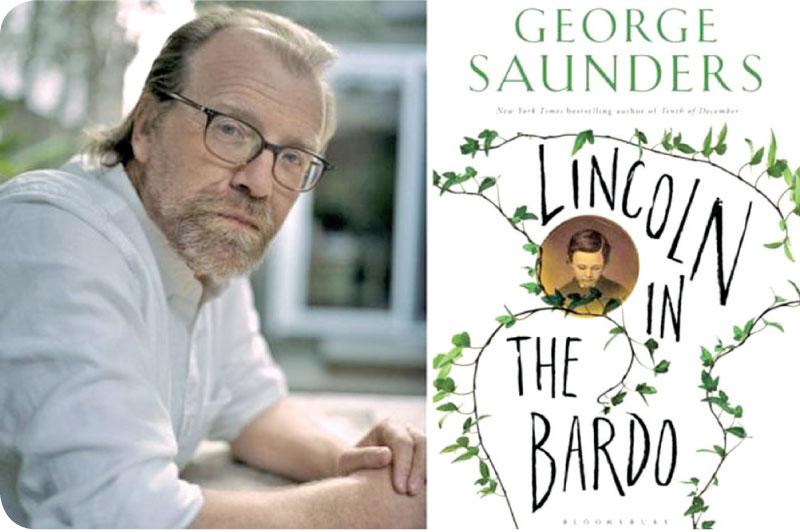
The book tells the story of Abraham Lincoln’s grief after the death of his young son, and his visits to his tomb.
It is the first full-length novel from Saunders, previously best known for his short stories, and is set in a graveyard, over a single night.
Judges praised the ‘utterly original’ work and said it was ‘deeply moving’.
Saunders said he had “carried the idea [for the novel] around for 20 years”, adding: “I really didn’t want to write about Lincoln but was so captivated by this story.”
BBC arts correspondent Rebecca Jones’ analysis:
This is initially a rather off-putting book - it’s got a rather strange title and when you read the first few pages, you don’t really know what’s going on.
It’s the most experimental of the shortlisted novels, told in a multiplicity of voices. It’s almost like a verbal collage.
It can be quite a disconnecting experience, but stick with it because it is not only very moving, but it’s also very funny.
Lincoln in the Bardo is a very interesting exploration of one of America’s great presidents. It’s examining his private rather than public role.
Because it’s dealing with his dead son, it could risk becoming sentimental, but George Saunders manages to avoid that.
One thing I can promise you is that you’ve never read a book like it. It is completely original.
Saunders, 58, was one of six authors shortlisted for the prestigious award, alongside British writers Ali Smith and Fiona Mozley, fellow Americans Paul Auster and Emily Fridlund, and British-Pakistani author Mohsin Hamid.
Speaking after his name was announced, Saunders said: “Thank you for this great honour which I hope to live up to with the rest of my work, for the rest of my life.”
The Texas-born author, who lives in New York, has previously won the Folio Prize and Story Prize for his short story collection Tenth of December. Lincoln in the Bardo is his ninth book, and had been the favourite to win the Booker.
The Duchess of Cornwall presented his trophy at London’s Guildhall. He based the story on a real moment in 1862 when the body of the US president’s 11-year-old son Willie was taken to a cemetery in Washington DC. Saunders revealed after writing the first third of the book he “got a bit freaked out” and wasn’t sure “if any other human being could read it”.
His wife Paula then read it and wrote on a post-it note “something so generous it will stay a secret forever” and that gave him the confidence to continue.
During a post-ceremony press conference, he said: ‘It sounds a little pathetic but for an artist I think validation is really helpful. Maybe you shouldn’t need it but I definitely do. ‘So when someone that I respect approves my work or when I get grouped with a bunch of writers like these wonderful talents, my opinion of myself improves a little bit and the next book has a little more courage in it.’ Saunders said the novel had been in his heart for 20 years before he wrote it.
Asked why it took him so long to commit it to the page, he told the BBC: ‘My stories are a little dark and cynical and sci-fi, and I just couldn’t see any way to approach this serious material.
